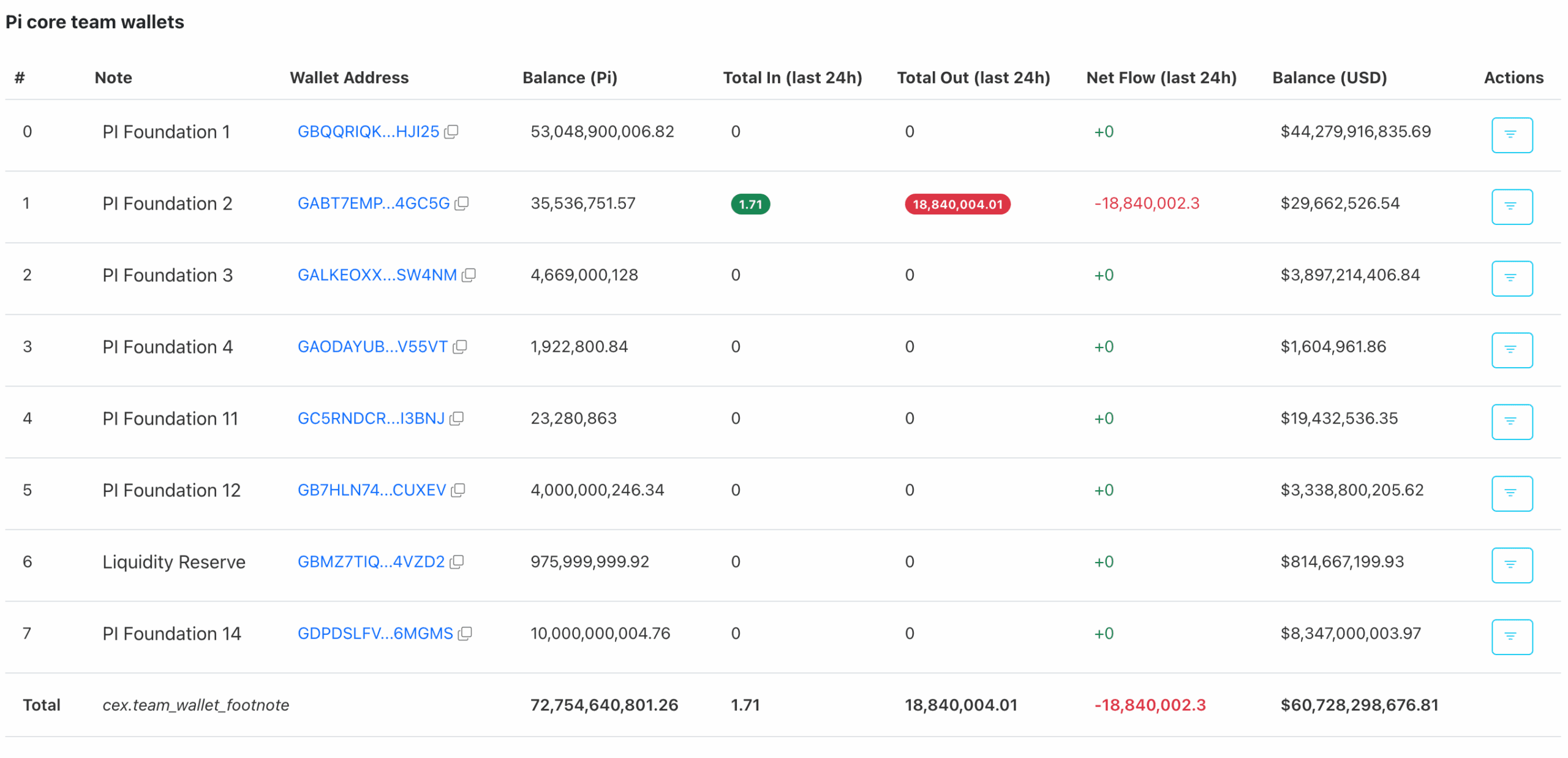The PI network looks at growing concerns because almost half of its lively knots are positioned in Vietnam. Piscan reports show that 154 out of 319 knots – 48.2% of the full amount – present within the country.
At the printing time, 33 of the 76 connected nodes were also positioned in Vietnam. This makes Vietnam probably the most dominant location for the infrastructure of PI Network.
PI network node distribution card, Vietnam leads with 154 knots. Source: Piscan
The data takes care of the decentralization of the PI network. With so many PI network nodes which can be concentrated in a rustic, the network may very well be exposed to faults if the local guidelines change.
Only two validator nodes – each by the PI Core team checked
Pi Network currently only has two Validator nodes. Piscan confirms that each belong to the core team of the project.
Validator nodes play a key role in maintaining blockchain integrity. If each are controlled by the identical group, the system lacks distribution.
This setup increases the concerns regarding the central government. It also limits the participation of the broader PI community.
The current laws in Vietnam don’t recognize virtual assets reminiscent of Pi Coin as legal payment instruments for non-cash payments. As a result, PI -Münz user is legally in danger.
According to the DECRET 88/2019/ND-CP and its 2021 update, Article 206, which may bring with crypto-like PI coins for payments, fines between 50,000,000 and 100,000,000 and. Criminal charges are also possible.
The Vietnamese officials published this warning in a government in March 2025. In the identical 12 months, the authorities opened an investigation of Pi Network's business model.
Ministry of Finance urges a stricter crypto supervision
The Ministry of Finance in Vietnam proposed recent rules in 2023 to limit cryptocurrency activities. The proposal includes that licensed institutions have committed the processing of crypto -or -friendly.
The law continues to be being checked. If that is passed, this may influence the Vietnam -Pi Mountain and reduce the variety of PI network nodes carried out locally.
These possible restrictions can have an effect on how PI network nodes work within the country, which increases the soundness of the platform.
Piscan data show that the PI Foundation controls over 60.7 billion of the 100 billion PI coin supply. That is greater than 60% of the full PI coin in circulation.
 PI Foundation Wallets last over 72.7 billion tokens. Source: Piscan
PI Foundation Wallets last over 72.7 billion tokens. Source: Piscan
This concentration raises questions on decentralization and distribution. Many blockchain ecosystems aim to spread control over users.
A reddit user commented,
“As long because the team has some coins, it’s going to never be decentralized.”
Insiders who sell allegations appear against the PI network work team
IninCrypto reported that a PI user accused the Insider sales core team. The report didn’t confirm the claim, but he added more examination.
The problem draws attention to how the PI coinuply is treated. In combination with validator control and node concentration, the claim contributes to the transparency of the network.
Since increasingly more PI network users are depending on nodes in Vietnam and native laws are intensified, the operational risks are growing.
